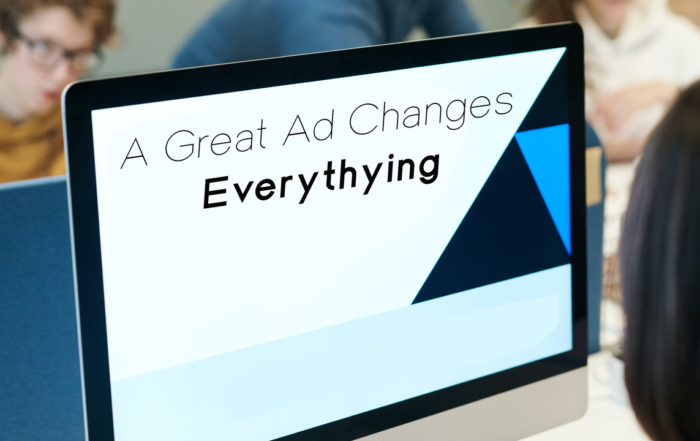In the fast-evolving landscape of advertising, Artificial Intelligence (AI) is no longer just a tool—it’s the game-changer. By 2025, AI will play an instrumental role in redefining how brands connect with their audiences, tailor messages, and drive engagement. With advancements in machine learning, natural language processing, and predictive analytics, the future of advertising is poised for a seismic shift. This blog delves into how AI will shape advertising strategies, personalization, creativity, and ethics in 2025.

Table of Contents
Hyper-Personalization at Scale
The days of one-size-fits-all advertising are long gone. In 2025, AI will enable brands to deliver hyper-personalized experiences tailored to individual consumers’ preferences, behaviors, and purchasing history.
AI-Driven Personalization
Using sophisticated AI algorithms, advertisers will analyze data from multiple sources—social media, browsing habits, purchase history, and even biometric data—to create ultra-targeted campaigns. For instance, an AI engine could generate personalized video ads for millions of users by dynamically adjusting visuals, copy, and offers based on each viewer’s preferences.
Predictive Consumer Insights
AI’s ability to predict future consumer behavior will take personalization to a new level. By analyzing patterns in past interactions, AI will suggest not only what customers want now but also anticipate their future needs. Imagine an AI system that predicts when a customer will run out of a product and proactively serves an ad at just the right moment.
Real-Time Adaptation
With AI, ads won’t just be personalized at the time of delivery—they will adapt in real-time. For example, weather-sensitive ads could change based on the viewer’s local weather, or product recommendations could shift if a user’s browsing behavior changes mid-session.
Revolutionizing Creative Processes
Creativity, often seen as the human forte, is being augmented by AI in fascinating ways. By 2025, AI will not replace human creativity but will empower it, enabling advertisers to produce innovative content faster and more efficiently.
AI-Generated Content
AI tools like DALL·E and ChatGPT are already generating compelling visuals, copy, and videos. In 2025, these tools will become even more advanced, enabling brands to create entire ad campaigns at a fraction of the time and cost. For example, a fashion brand could use AI to design seasonal ad campaigns complete with images, taglines, and videos—all aligned with the brand’s aesthetic.
Collaborative Creativity
Rather than replacing creative teams, AI will serve as a collaborative partner. Creative directors will use AI tools to generate initial concepts or test variations, leaving more time to focus on storytelling and strategy. This collaboration will foster a new wave of creative experimentation.
Enhanced Storytelling
AI will revolutionize storytelling by enabling dynamic narratives. Imagine an ad where the storyline changes based on the viewer’s preferences. For instance, an AI-driven ad for a travel agency could showcase tropical destinations to one user and mountain getaways to another—each with a customized storyline.
Programmatic Advertising Gets Smarter
Programmatic advertising, the automated buying and selling of ad space, will become more intelligent with AI in 2025. AI algorithms will optimize every aspect of programmatic campaigns, from targeting and bidding to ad placement and performance measurement.
Precision Targeting
AI will refine targeting to a granular level. By leveraging real-time data, it will identify niche audiences that align perfectly with a brand’s objectives. This means fewer wasted impressions and higher ROI.
Dynamic Pricing and Bidding
AI-driven bidding algorithms will predict the value of ad impressions more accurately, ensuring advertisers get the most out of their budgets. For instance, AI could dynamically adjust bids for ad slots based on factors like user behavior, time of day, and competition.
Fraud Detection
Ad fraud costs the industry billions annually. AI’s advanced pattern recognition capabilities will be pivotal in identifying and mitigating fraudulent activity, such as click fraud and fake impressions, ensuring advertisers’ dollars are spent effectively.
AI-Powered Video Advertising
Video content continues to dominate online engagement, and AI will enhance its production, targeting, and delivery by 2025.
Automated Video Creation
Tools like VFXbot and others are already enabling marketers to create stunning video ads with minimal effort. By 2025, AI will produce videos that are not only visually appealing but also contextually relevant. For instance, AI could analyze a user’s mood based on social media activity and serve a video ad that resonates emotionally.
Interactive Video Ads
AI will bring interactivity to video ads, allowing viewers to engage directly. For example, users might click on products featured in an ad to see details or customize an offer based on their preferences—all within the video interface.
Personalized Storytelling in Video
AI will enable brands to create videos with personalized narratives. A fitness brand, for example, could produce ads where the content changes based on whether the viewer is a beginner, intermediate, or advanced athlete.
Voice and Conversational AI in Advertising
As voice search and smart assistants become ubiquitous, AI will help advertisers tap into these channels more effectively.
Voice-Activated Ads
In 2025, voice-activated ads will become a standard format. Imagine a scenario where a user says, “Alexa, find me a good pair of running shoes,” and hears a targeted ad from a sportswear brand, complete with an offer and a seamless option to purchase.
Conversational AI for Engagement
Chatbots powered by conversational AI will bridge the gap between ad delivery and customer service. For instance, a user who interacts with an ad for a car dealership could immediately chat with an AI assistant to schedule a test drive or inquire about financing options.
Natural Language Processing (NLP) for Better Copywriting
AI-driven NLP models will optimize ad copy for different contexts and platforms. From crafting concise taglines for Twitter to detailed product descriptions for e-commerce, AI will ensure messaging is both engaging and effective.
Data Privacy and Ethical Advertising
As AI-driven advertising becomes more sophisticated, ethical concerns will take center stage. By 2025, brands will need to strike a balance between personalization and privacy.
Transparent Data Practices
Consumers are increasingly wary of how their data is used. AI will help brands adopt transparent data practices, allowing users to control their data while still benefiting from personalized experiences. For instance, AI could enable consumers to opt into specific types of personalization, fostering trust.
Ethical AI Models
The advertising industry will prioritize developing ethical AI models that minimize bias and respect user consent. These models will ensure that targeting and messaging are inclusive and non-discriminatory.
Regulation Compliance
AI will assist advertisers in navigating complex regulations like GDPR and CCPA by automating compliance processes. This will ensure that ad campaigns meet legal standards while delivering value to consumers.
AI in Predicting Trends and ROI
By 2025, AI will not just execute campaigns but also predict their success. Advertisers will rely on AI to identify emerging trends and optimize ROI.
Trendspotting with AI
AI will analyze vast amounts of data from social media, news, and consumer behavior to identify trends before they go mainstream. This foresight will give brands a competitive edge, allowing them to stay ahead of the curve.
Predictive ROI Models
AI will simulate campaign outcomes based on historical data, enabling advertisers to allocate budgets more effectively. For instance, an AI model could predict how a holiday campaign will perform across different channels, helping brands optimize their spending.
Democratizing Advertising for Small Businesses
AI will level the playing field for small and medium-sized businesses (SMBs) by making advanced advertising tools accessible and affordable.
Affordable Ad Creation
AI-powered platforms will offer SMBs tools to create high-quality ads without the need for expensive agencies. For example, a local bakery could use an AI tool to produce a professional video ad showcasing their latest offerings.
Simplified Campaign Management
AI will simplify campaign management for SMBs by automating targeting, budgeting, and performance analysis. This will allow small businesses to focus on their core operations while still running effective ad campaigns.
Localized Advertising
AI will enable SMBs to target hyper-local audiences with precision, ensuring that their messages reach the right people at the right time.
Conclusion
By 2025, AI will have transformed advertising into a more personalized, efficient, and creative field. It will empower brands to connect with consumers in ways that were once unimaginable while raising important questions about ethics and privacy. For advertisers, the challenge will be to harness AI’s potential responsibly, balancing innovation with the need to build trust.
The future of advertising isn’t just about AI—it’s about how we, as an industry, adapt to its capabilities and use them to create meaningful connections. As we move forward, one thing is clear: AI isn’t just shaping the future of advertising—it is the future.
Recent Posts
How to Create an Effective Advertising Campaign
Advertising is a crucial element of marketing that can make or break a business.[...]
The Power of Visual Advertising: A Deep Dive
The Power of Visual Advertising as a potent tool in the world of marketing[...]
The Evolution of Advertising: From Print to Digital
Advertising has come a long way from the days of print ads in newspapers[...]



